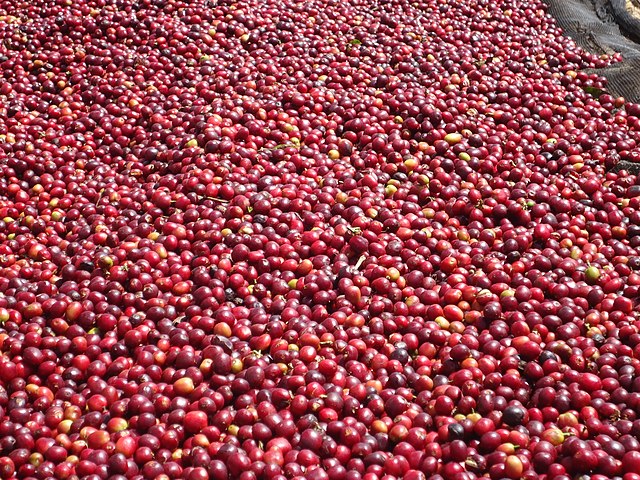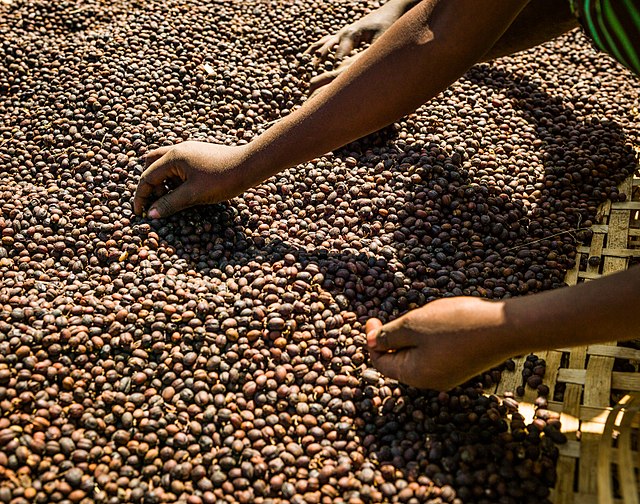The economy of Ethiopia is a mixed and transition economy with a large public sector. The government of Ethiopia is in the process of privatizing many of the state-owned businesses and moving toward a market economy. The banking, telecommunication and transportation sectors of the economy are dominated by government-owned companies.
Addis Ababa, the financial centre of Ethiopia
Coffee sorting process is huge since Ethiopia exports over a billion dollars' worth of coffee globally
Microcline from the Kenticha mine, Oromia Region, Ethiopia.
Ethiopian Prime Minister Ahmed with Indian counterpart Prime Minister Narendra Modi meeting for Ethiopia's admission to the alliance
Coffee production in Ethiopia
Coffee production in Ethiopia is a longstanding tradition which dates back dozens of centuries. Ethiopia is where Coffea arabica, the coffee plant, originates. The plant is now grown in various parts of the world; Ethiopia itself accounts for around 17% of the global coffee market. Coffee is important to the economy of Ethiopia; around 30-35% of foreign income comes from coffee, with an estimated 15 million of the population relying on some aspect of coffee production for their livelihood. In 2013, coffee exports brought in $300 million, equivalent to 24% of that year's total exports.
An example of the coffee bean sorting process in Hawassa, Sidama Region
A training seminar for coffee tasters (cuppers) in 2003
A Coffea arabica tree on Lake Tana in Bahir Dar
Ethiopian Sidamo beans








